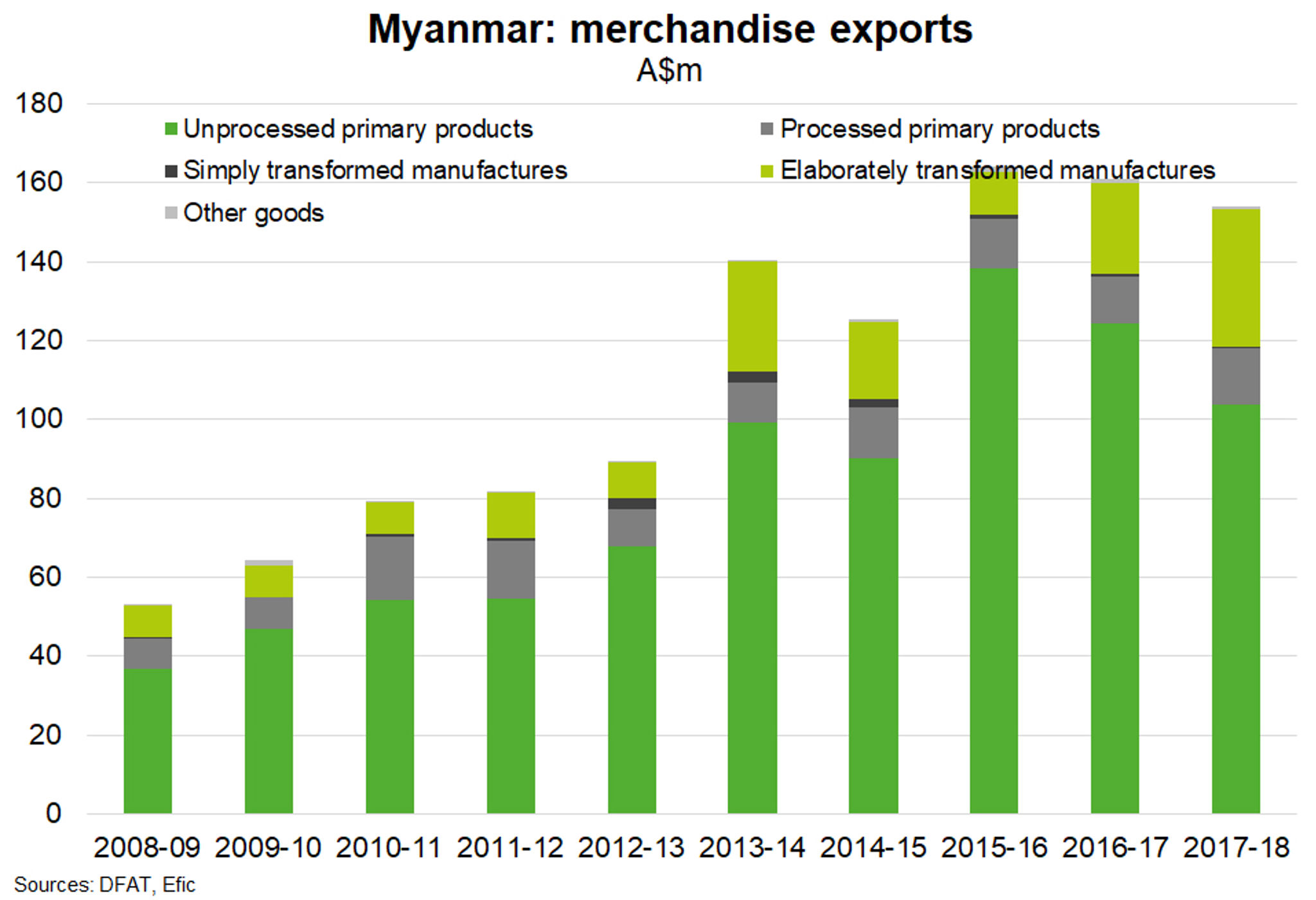Myanmar—Security risks erode export opportunities
The removal of US sanctions in 2016 stoked much optimism about Myanmar’s prospects. Indeed, economic fundamentals are strong—GDP is expected to expand 7% p.a. over the medium term, given an abundance of natural resources, compelling demographic dividend and geostrategic location between global growth engines. But while the civilian government has sought to improve the investment climate by eliminating multiple exchange rates, reducing trade restrictions, reforming tax policy and administration, and passing arbitration and labour legislation in line with international standards, major constraints remain. Institutional capacity and legal transparency are lacking. Myanmar ranks 188 of 190 economies in the World Bank’s measure of enforcing contracts—outperforming only Bangladesh and Timor-Leste. A lack of policy clarity, financial sector vulnerability, and spillovers from trade tensions and China’s slowdown also constrain the outlook.
A prolonged crisis in Rakhine state could yet see new sanctions and reduced critical investment. Over 700,000 Rohingya have fled into Bangladesh since 2017. In response, the EU, UK, US, Australia and Canada imposed targeted sanctions against a small number of military officers last year. But a recently intensified security crackdown in Rakhine state could incite an upsurge in violence—potentially derailing peace negotiations to end decades of conflict with the country’s patchwork of ethnic armed groups and diminishing the prospect of Rohingya repatriation. In addition, reports from the UN Human Rights Council and US State Department leave room for major nations to take a harder line on the military. While foreign commercial interests are unlikely to be targeted, international condemnation poses risks to foreign firms—the military holds extensive, albeit murky and under-reported, commercial interests.

